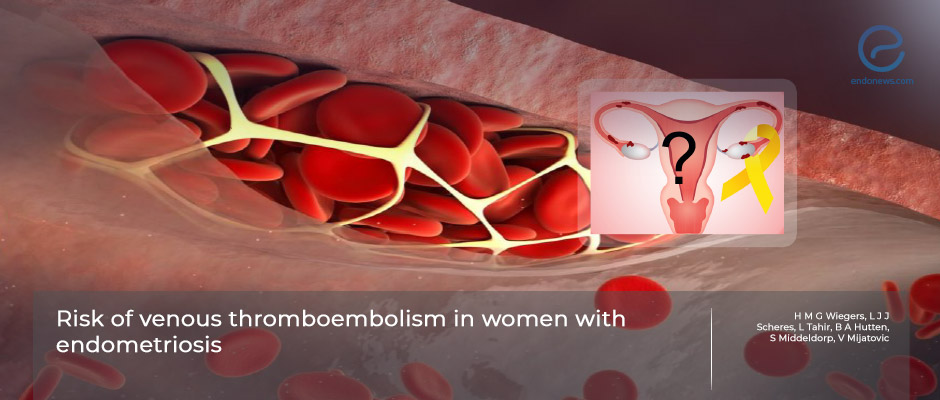The association between severe endometriosis and venous thromboembolism
Oct 11, 2022
There is no association between presence of severe endometriosis and increased risk of venous thromboembolism.
Key Points
Highlights:
- Although endometriosis is thought to predispose to venous thromboembolism due to its underlying pathophysiological mechanisms and treatment options, no such relationship is detected.
Importance:
- Women with endometriosis should be informed that they do not have an increased risk of venous thromboembolism due to the presence of endometriosis.
What’s done here?
- A homogeneous group of women with endometriosis having the highest risk for venous thromboembolism was included in this explorative cohort study.
- Participants were selected from the patients having severe endometriosis, undergoing laparoscopic surgery, and taking hormonal treatment.
- The follow-up period of the patients started after the surgery and ended when the venous thromboembolism developed or the patients were lost to follow-up.
- Risk estimates for venous thromboembolism were calculated based on available literature following the review of hospital records of the patients.
Key results:
- All participants were surgically confirmed severe endometriosis cases taking hormonal therapy.
- Only one venous thromboembolism event and a massive fatal pulmonary embolism occurred 8 days after the operation (incidence of 0.3 per 1000 person-years).
Strengths and Limitations
- The large sample size and inclusion of the patients having the highest risk for venous thromboembolism represent the strengths of this study.
- The retrospective design, absence of a control group, and inability to adjust confounders could be accepted as the limitations of the study.
Lay Summary
For clarifying the issue of whether endometriosis patients are at risk for venous thromboembolism due to both their local immune and inflammatory responses and hormonal treatments, Wiegers et al, from the Netherlands, published an explorative cohort study entitled “Risk of venous thromboembolism in women with endometriosis” in the scientific journal named Thrombosis Research.
The aim was to evaluate whether there is an association between severe endometriosis and venous thromboembolism. They used a risk ratio of 2 as the threshold for venous thromboembolism based on available literature. The study included 533 women having surgically confirmed severe endometriosis, all of whom were taking hormonal treatment to manage endometriosis or alleviate pelvic pain.
Only one venous thromboembolism event and a massive fatal pulmonary embolism occurred 8 days after the operation, yielding a venous thromboembolism incidence of 0.3 per 1000 person-years.
“Within the limits of the current study design, endometriosis does not seem to be associated with a clinically relevant increased VTE risk,” the authors concluded.
Research Source: https://pubmed.ncbi.nlm.nih.gov/35932497/
endometriosis thrombosis venous thromboembolism women hormones risk ratio

